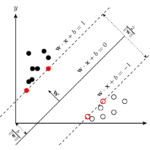Introduction
In the fast-paced realm of artificial intelligence (AI) and machine learning, learning agents emerge as captivating and promising entities. These digital marvels possess the ability to interact with their surroundings, acquire knowledge, and enhance their performance over time. Embark on an exciting journey as we delve into the world of learning agents, uncovering their significance, types, applications, and the thrilling possibilities they hold for the future.
Understanding Learning Agents
In the heart of it, a learning agent stands as an AI entity capable of learning from experiences, adapting to new situations, and making informed decisions. Inspired by human learning, these agents are equipped with algorithms and mechanisms that enable them to collect data, recognize patterns, and adjust their behaviors based on the outcomes of their actions. The crux of learning agents lies in their capacity to learn autonomously, freeing them from the need for explicit programming for each scenario.
Types of Learning Agents
- Reactive Agents: These agents make decisions based on their current perception of the environment. Although lacking in memory and long-term planning, they excel in quick and efficient decision-making, making them ideal for tasks with clear-cut rules and immediate outcomes.
- Model-Based Learning Agents: Equipped with an internal model of the environment, these agents can simulate scenarios and plan their actions accordingly. This type of agent thrives in dynamic environments where actions have delayed consequences.
- Value-Based Learning Agents: Value-based agents evaluate the value of different actions to maximize expected outcomes. They employ techniques like Q-learning and deep reinforcement learning to refine their strategies through trial and error.
- Policy-Based Learning Agents: These agents learn the best actions to take in given situations directly. Leveraging policy gradients and evolutionary strategies, they progressively enhance their performance.
Applications of Learning Agents
- Gaming: Learning agents demonstrate prowess in mastering complex games like chess, Go, and video games. Think of AlphaGo and OpenAI’s Dota 2 bots, conquering human champions.
- Autonomous Vehicles: Self-driving cars rely on learning agents to navigate roads, make real-time decisions, and adapt to varying traffic conditions.
- Robotics: Learning agents play a vital role in robotic control systems, enabling robots to learn tasks such as object manipulation, assembly, and navigation.
- Healthcare: Learning agents assist in medical diagnosis, drug discovery, and personalized treatment plans by analyzing patient data and medical literature.
- Finance: Trading algorithms and portfolio management harness learning agents to analyze market trends and optimize investment strategies.
Challenges and Future Directions
While learning agents offer tremendous promise, they also encounter challenges. Ethical considerations, interpretability, and potential biases necessitate careful attention. Striking a balance between exploration and exploitation, averting catastrophic failures, and ensuring generalization across different environments are ongoing areas of research.
The future of learning agents is enthralling. As AI research advances, we can anticipate more resilient, adaptable, and ethical agents. Enhanced transfer learning capabilities, multi-agent interactions, and the fusion of learning agents with other AI technologies will likely shape the next phase of development.
Conclusion
Learning agents epitomize AI’s endeavor to replicate human learning and decision-making processes. With their capacity to learn, adapt, and evolve independently, these agents are revolutionizing industries, boosting efficiency, and paving the way for innovation. As we stand on the brink of the AI revolution, learning agents provide a glimpse into AI’s potential to be not only tools but also adept and intelligent companions across various facets of our lives.




